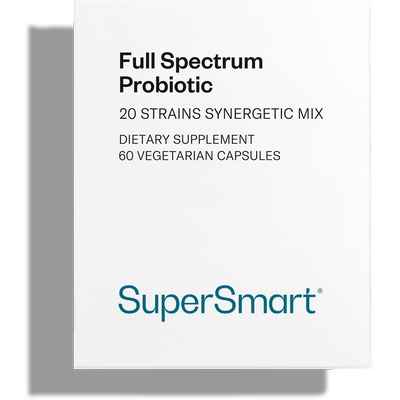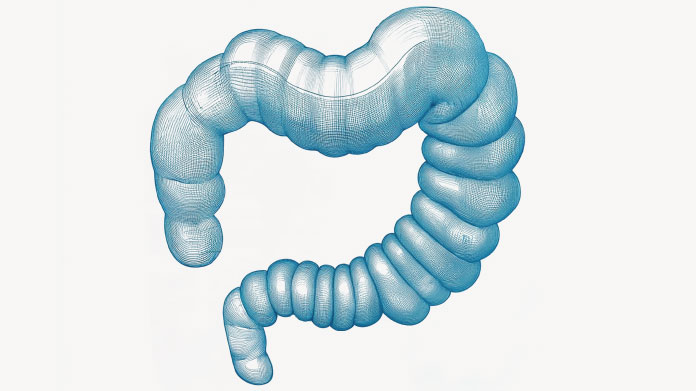Lactic acid bacteria: definition, benefits and risks
Used for thousands of years to preserve foods, lactic acid bacteria offer multiple health benefits. How can you make optimal use of them?

Lactic acid bacteria: definition and history
Lactic acid bacteria, also known as lactic ferments, are bacteria that produce lactic acid through fermentation, ie, by breaking down the sugars in food.
There are four main groups of lactic acid bacteria:
- Lactobacillus;
- Bifidobacterium;
- Lactococcus ;
- Streptococcus.
There’s also the leuconostoc genus (from the lactobacillus family).
Used for thousands of years for preserving food, lactic fermentation was actually only discovered in the 19th century, specifically in dairy products. That’s why, even though these amazing bacteria play a key role in many types of food processing (and many metabolic processes such as production of ATP in the body), they are referred to as ‘lactic’.
Lactic acid bacteria and yogurt, how does it work?
Lactic acid bacteria, specifically Lactobacillus bulgaricus and Streptococcus thermophilus, are used to produce yogurt. When cultures are added to milk, the lactic ferments consume the sugars in the milk, in particular lactose, to produce lactic acid.
Lactic acid causes the milk to thicken, changing the consistency to that of yogurt, and generating acidity.
When bifidobacteria are used, it results in a product with a different taste and consistency for which the designation ‘yogurt’ cannot be used.
Lactic acid bacteria and cheese: another application
Lactic acid bacteria, along with rennet, are also central to the production of cheese. In fact, to make cheese, the milk needs to coagulate so that the ‘solid’ part can be recovered and the liquid part extracted. Either rennet or lactic acid bacteria are used for this purpose:
- lactic acid bacteria are used for creamy, soft cheeses with a short shelf life (camembert, Chaource, goat’s cheese, etc) and a delicate curd;
- rennet is used for hard cheeses which keep better (Comté, etc.), and have a firmer, more elastic curd;
- and depending on the desired result, it’s quite common for both to be used to produce a wide range of cheeses.
Lactic acid bacteria and lacto-fermentation
The use of lactic acid bacteria is not, however, restricted to yogurt and cheese production! These microorganisms are also integral to the production of lacto-fermented vegetables, such as sauerkraut (1).
Here, vegetables are left to ferment in brine (a mixture of salt and water) in order for their naturally-present lactic acid bacteria to digest some of their sugars. This produces a tangy dish rich in natural lactic ferments which is excellent for the gut microbiota!
Lactic acid bacteria and sausage? Though it’s an unlikely combination, lacto-fermentation is actually an essential stage in the production of fermented sausage-type charcuterie.
Lactic acid bacteria and lactose intolerance
Since lactic acid bacteria digest lactose to produce lactic acid, cheese has a lower lactose content than milk. That’s why many lactose-intolerant individuals are able to eat cheese, and sometimes even yogurt, without any problem – they have lactic acid bacteria to thank for that (2)!
It’s worth noting that hard cheeses like Comté contain even less lactose than soft cheeses, as the lactic acid bacteria consume even more lactose to produce a firm curd.
Benefits of lactic ferments for the gut microbiota
The human body contains billions of beneficial bacteria located in key positions: we now understand these as comprising distinct types of microbiota:
- the oral microbiota;
- the ENT microbiota;
- the mammary microbiota;
- the skin microbiota;
- the vaginal microbiota;
- and gut microbiota.
It’s the latter, in particular, which has been widely studied over the last several years. Gut microbiota health has been found to directly affect not only immune system quality but also mood (3-4).
It just so happens that this gut microbiota is comprised of, amongst others, lactic acid bacteria, which is why in general, probiotics are largely composed of lactic bacteria (5).
Indeed probiotics, today recognised for supporting normal gut microbiota function, therefore now include (6):
- Lactobacillus delbrueckii;
- Lactobacillus bulgaricus;
- Streptococcus thermophilus;
- Lactobacillus acidophilus;
- Lactobacillus rhamnosus;
- Lactobacillus helveticus;
- Lactobacillus plantarum ;
- Bifidobacterium animalis;
- Bifidobacterium infansis;
- Bifidobacterium bifidum.
Many of these strains of bacteria are combined in the multi-strain probiotic supplement Full Spectrum Probiotic Formula.
Lactic ferments: risks
Studies on lactic acid bacteria have actually found no risks associated with their consumption. The only potential side-effect is from excessive intake of lacto-fermented products which may produce a laxative effect due to over-stimulation of the digestive system by lactic acid bacteria.
Apart from that, long-term supplementation with probiotics should not cause any problems, though it’s usually advisable to limit it to three months’ duration to allow time for the gut microbiota to re-form on its own.
For more information on taking probiotics, check out our blog articles ‘How long should a course of probiotics last?‘ and ‘Probiotics: can you take them all the time?’.
SUPERSMART ADVICE
References
- RICCI, Annalisa, BERNINI, Valentina, MAOLONI, Antonietta, et al.Vegetable by-product lacto-fermentation as a new source of antimicrobial compounds. Microorganisms, 2019, vol. 7, no 12, p. 607.
- GURR, M. I. Nutritional aspects of fermented milk products. FEMS Microbiology Reviews, 1987, vol. 3, no 3, p. 337-342.
- KELLY, Denise, CONWAY, Shaun, et AMINOV, Rustam. Commensal gut bacteria: mechanisms of immune modulation. Trends in immunology, 2005, vol. 26, no 6, p. 326-333.
- PEIRCE, Jason M. et ALVIÑA, Karina. The role of inflammation and the gut microbiome in depression and anxiety. Journal of neuroscience research, 2019, vol. 97, no 10, p. 1223-1241.
- DEROSA, Lisa, ROUTY, Bertrand, FIDELLE, Marine, et al.Gut bacteria composition drives primary resistance to cancer immunotherapy in renal cell carcinoma patients. European urology, 2020, vol. 78, no 2, p. 195-206.
- LJUNGH, Asa et WADSTROM, Torkel. Lactic acid bacteria as probiotics. Current issues in intestinal microbiology, 2006, vol. 7, no 2, p. 73-90.
59 Days
Very happy with the order and the…
Very happy with the order and the prompt team's response to an identified issue with my order.
KUQI Fatmir
66 Days
15 + years as a customer
I have been using their products for over 15 years as I find both the quality and pricing excellent.
Del Chandler
68 Days
Good quick delivery
Good quick delivery
Timothy O Shea
69 Days
Good service
Good communication following order. Product came within the time frame and was well packaged. The only confusing thing I found was in checking out. For some reason it is not clear how to do so and the current system should be improved.
Joe O Leary
78 Days
Simple and fast.
Simple and fast.
Nina
79 Days
Great product was definitely what is…
Great product was definitely what is says and arrived on without issue
customer
85 Days
I love reading those product facts on…
I love reading those product facts on Supersmart.com. Effective health products making permanent changes to my blood-work results and testes. However, I also have to order capsules from other websites.
NORDGULEN Olav
88 Days
Great products
Great products Very easy to choose, to order… and to get at home
Federica mastrojanni
90 Days
Service rapide et bons produits
Service rapide et bons produits
customer
91 Days
Good products and fast delivery
Good products and fast delivery
Trusted
96 Days
Does what it says on the can
I believe in this product Made to highest standard The ordering process is straightforward Delivery time prompt Excellent product, excellent service Happy customer ❤️
Sheba Kelleher
101 Days
Excellents produits
Excellents produits. Rien à dire si ce n'est qu'ils sont très chèrs.
MJS_France
104 Days
Very good supplement
Very good supplement
Glaveash
105 Days
Supersmart supplements are really…effective
Supersmart supplements are really effective and have helped me and family members and friends to improve their health including some of us with severe health problems including some with no existing medical treatment.
Anne Georget
106 Days
SuperBig Supersmart
SuperBig Supersmart
Pierre




